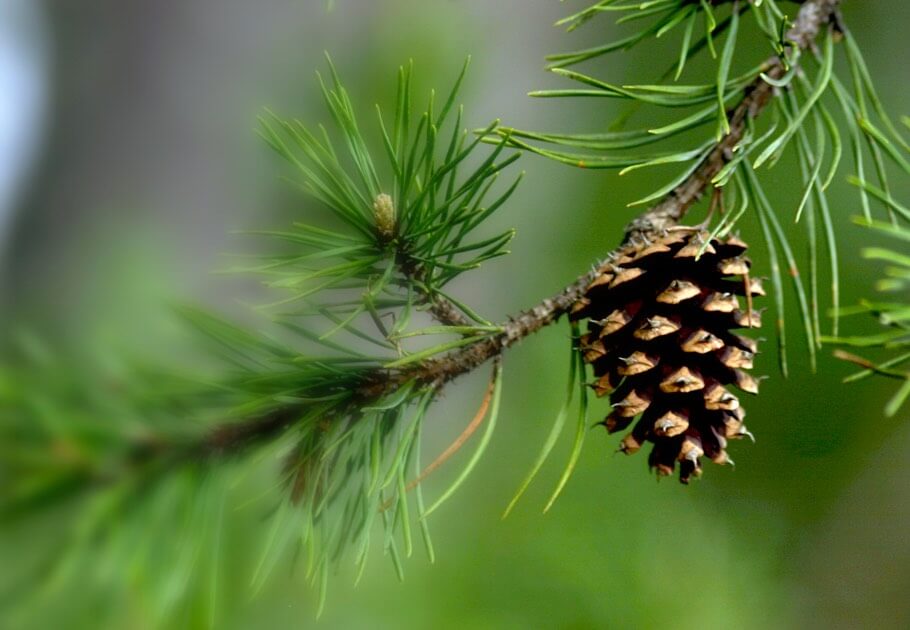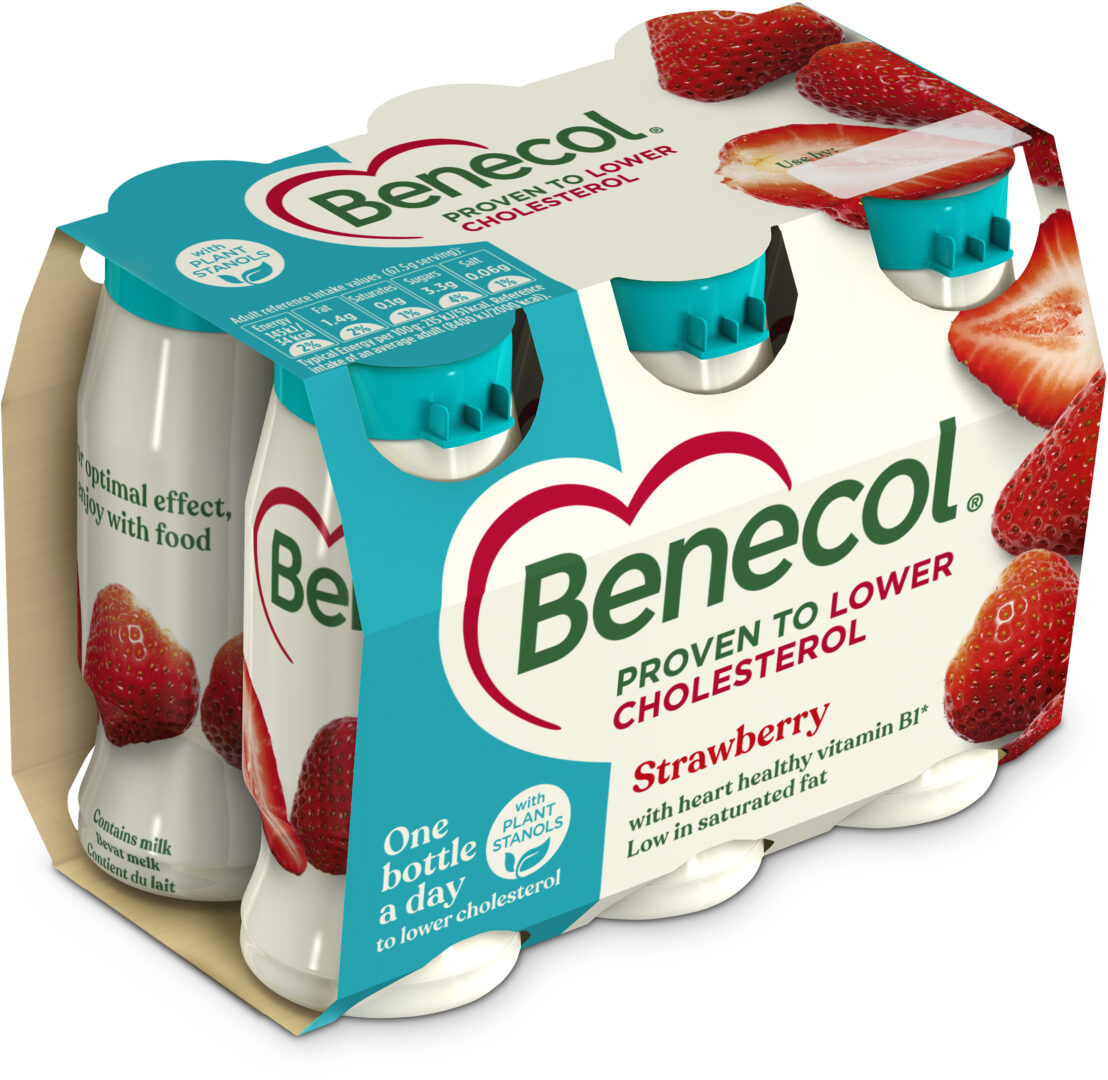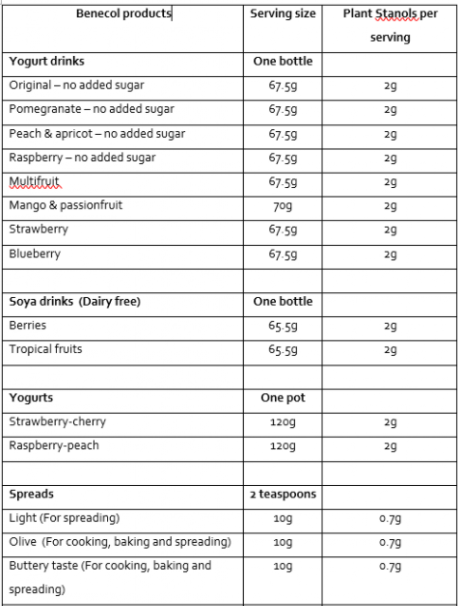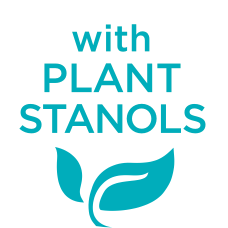Plant Stanols – From nature to cholesterol lowering
In this article, we’ll cover everything from what are plant stanols, how do those help to lower cholesterol, how to get enough plant stanols in your diet and are those safe to take.

1. What are plant stanols?
2. What’s the link between plant stanols and cholesterol?
3. How does cholesterol get into our digestive system?
4. How do plant stanols help to lower cholesterol?
5. Is there any proof that stanols work?
6. Is there a minimum amount of plant stanols we should have to lower cholesterol?
7. How easy is it to get enough plant stanols in our diet?
8. List of foods with Plant Stanols
9. What are plant stanol esters?
10. Who should take products containing plant stanols?
11. Is there anyone who should avoid products containing plant stanols?
12. Can products containing plant stanols be used alongside cholesterol-lowering medication?
13. Best Plant Stanol Supplement
14. How should Benecol products be consumed?
15. What happens if I stop taking plant stanols?
16. Is it worth taking plant stanols if cholesterol is within healthy limits?
17. Are plant stanols safe to take?
18. Are there any side effects to taking plant stanols?
19. How do Benecol products fit into our overall diet?
20. FAQ
What are plant stanols?
Plant stanols are naturally found in small amounts in plant foods such as wholegrains, nuts, seeds, fruit, vegetables, beans, lentils and vegetable oils [1, 2]. They’re also added to some foods in larger amounts, such as yogurt drinks, yogurts, spreads. The reason they’ve gained so much interest in recent years is thanks to their ability to help people control their cholesterol. We talk more about plant stanols at Benecol, because Benecol products contain added plant stanols – they’re designed to taste delicious but also help people lower their cholesterol, as part of a balanced, healthy diet.
Plant stanol ester has been shown to lower cholesterol. High cholesterol is a risk factor in the development of coronary heart disease. A daily intake of 1.5-2.4g has been shown to lower cholesterol by 7-10% as part of a healthy diet and lifestyle.
According to The Cholesterol Charity Heart UK – ‘Some experts believe foods with added plant stanols and sterols are the most effective single food for lowering cholesterol’.
What’s the link between plant stanols and cholesterol?
Plant stanols are considered the plant kingdom’s equivalent to cholesterol [3], due to their similar structure and the comparable roles they play in plant cells, mirroring the functions of cholesterol in the human body. It’s this similarity in structure that’s responsible for the benefits achieved by adding plant stanols to our diet.
It’s this similarity in structure that’s responsible for the benefits achieved by adding plant stanols to our diet.
How does cholesterol get into our digestive system?
Cholesterol doesn’t just circulate in our blood. It’s also present in our digestive system. Some of this comes from the cholesterol contained in the food we eat. Most of cholesterol in digestive system comes from the bile solution, which is made in the liver, stored in the gallbladder and released when food leaves our stomach and enters the small intestine.
The bile solution contains bile acids, which are made from cholesterol by the liver. These bile acids are crucial in the digestion of dietary fats and oils. Bile acids, digested fat and fat-soluble components, like cholesterol are packed into small droplets called mixed micelles, which are kind of water-soluble “transport capsules”. These mixed micelles are attached to the small intestinal wall and fat and cholesterol are taken up by absorptive cells. After this, part of the bile acids is excreted in faeces, while most of it is recycled back to the liver.

The Simple Science of Plant Stanols
How do plant stanols help to lower cholesterol?
In our digestive system, small particles carry cholesterol to the wall of our intestine. Here, the cholesterol travels across the wall and is absorbed into the blood. Because plant stanols are similar in size and shape to cholesterol [4], they are able to jump in and take the place of some of the cholesterol in these small particles. This means more cholesterol stays in our digestive system rather than entering our bloodstream. Normally about 50% of cholesterol is absorbed from the digestive tract into the blood, but when plant stanols have been taken, just 20% of cholesterol is absorbed [5, 6]. Better still, it’s particularly the LDL cholesterol (the main component of non-HDL or ‘bad’ cholesterol) that’s lowered in our blood – our HDL or ‘good’ cholesterol isn’t affected. This is great news as less ‘bad’ cholesterol in our blood means less potential for clogging up our arteries, helping to keep them healthy and allowing blood to flow freely. High cholesterol is a risk factor in the development of coronary heart disease*[7]. The cholesterol that’s left behind in the digestive system is then eliminated from the body when we go to the toilet.
*Plant stanol ester has been shown to lower cholesterol. High cholesterol is a risk factor in the development of coronary heart disease (CHD). CHD has multiple risk factors, including smoking, inactivity, being overweight or obese, high blood pressure, high triglycerides, type 2 diabetes, drinking alcohol to excess and having too much stress, and it’s the sum of these parts that’s important – the more risk factors you have, the more you’ll need to improve to reduce your overall risk. But, the good news is that many of these risk factors overlap and influence each other: you can make improvements in one area, like your cholesterol levels, and you’re likely to see them benefit each other.
Is there any proof that plant stanols work?
Plant stanol esters have been rigorously researched and tested and there’s heaps of evidence that proves they help to lower cholesterol and keep it lower with daily use. In fact, their ability to lower cholesterol has been demonstrated in more than 80 independent clinical studies [8-15] and guidelines around the world recommend people with high blood cholesterol include plant stanols as part of an overall healthy eating plan that will help to reduce cholesterol [16-18].
Bottom line: Plant stanol ester in Benecol foods is proven to be an effective part of a balanced and varied and an overall healthy diet to lower cholesterol. 80 + clinical studies have proven that plant stanols in Benecol products actively lower cholesterol.
Within the UK and EU countries, certain products such as spreads and dairy products that have plant stanol esters added to them in certain specified amounts can make the following claim: Plant stanol esters have been shown to lower/reduce blood cholesterol. High cholesterol is a risk factor in the development of coronary heart disease. [14]
Is there a minimum amount of plant stanols we should have to lower cholesterol?
Yes, there is! In people who have high blood cholesterol, a daily intake of 1.5-2.4g of plant stanols lowers LDL cholesterol (the main component of non-HDL or ‘bad’ cholesterol) by an average of 7-10% within two to three weeks. [19] You need to have these amounts every day for two to three weeks to see the benefit to cholesterol levels. Higher than 3 g/day plant stanols should not be consumed based on recommendations by authorities (ref. 22 or other)
How easy is it to get enough plant stanols in our diet?
Plant stanols occur naturally in a variety of plant foods such as wholegrains (for example wheat and rye), nuts, seeds, fruit, vegetables, beans, lentils and vegetable oils (like corn, sunflower and rapeseed oil) [1, 2]. However, they’re only found in small amounts, so even a healthy diet that includes plenty of these foods won’t provide enough plant stanols to actively lower cholesterol. Although vegetarian diets may contain slightly higher amounts, a normal diet has been shown to contain just 20-30 mg plant stanols each day [22, 23].
So, the only way to get enough plant stanols to actively reduce cholesterol is to enjoy foods that have plant stanols added to them in large enough amounts. Benecol products include yogurts, yogurt and soya drinks, spreads and, all of which have plant stanol esters added to them to help you achieve each day the amount needed to see a reduction in cholesterol.
List of foods with plant stanols
Plant stanols are naturally occurring substances found in a variety of plant-based foods. They have been shown to help lower cholesterol levels, making them a valuable addition to a heart-healthy diet. Let’s explore some everyday foods containing plant stanols and see how they compare to Benecol products.
Foods Containing Plant Stanols
Incorporating foods with plant stanols into your diet can be simple and delicious. Here’s a brief list of some everyday items that are great sources of plant stanols:
Fruits and Vegetables
- Fruits: Apples, oranges, and berries
- Vegetables: Broccoli, Brussels sprouts, and carrots
Nuts and Seeds
- Nuts: Almonds, walnuts, and pistachios
- Seeds: Sunflower seeds, chia seeds, and flaxseeds
Products with added plant stanols
- Benecol Products: Spreads, yogurts
These foods are easy to incorporate into your daily meals, helping you boost your plant stanol intake effortlessly.
Comparing Plant Stanol Levels: Foods vs. Benecol Products
To give you a clearer picture of how much plant stanol you’re getting from different foods, here’s a comparative table. This table shows the levels of plant stanols in various foods compared to Benecol products.
Table: Plant Stanol Levels in Foods vs. Benecol Products
| Food Item | Weight or serving size | Plant Stanols (mg) |
| Apple | 100g | 0.8 |
| Avocado | 100g | 0.5 |
| Broccoli | 100g | 2 |
| Lettuce | 100g | 0.5 |
| Potato | 100g | 0.6 |
| Rice | 100g | 3 |
| Wheat | 100g | 17 |
| Benecol Spread | 2 tsp (10g)* | 700* |
| Benecol Yogurt | 1 pot (120g) | 2000 |
| Benecol Yogurt Drink | 1 bottle (65g) | 2000 |
Source: https://www.ncbi.nlm.nih.gov/pmc/articles/PMC6163911/
Key Takeaways
- Fruits and Vegetables: While fruits and vegetables are a healthy choice and provide various nutrients, their plant stanol content is relatively low
- Nuts and Seeds: Nuts and seeds offer moderate amounts of plant stanols, along with healthy fats and proteins.
- Benecol Products: Benecol spreads, yogurts, and snack bars are specially formulated to provide a significant amount of plant stanols. These products can easily help you meet your daily plant stanol needs to lower cholesterol.
- *Benecol Spread: Our advice is to consume 30g of spread per day to lower cholesterol.
How to Incorporate These Foods into Your Diet
- Start Your Day Right: Add a spoonful of chia seeds to your morning smoothie or sprinkle flaxseeds over your cereal.
- Healthy Snacking: Munch on a handful of almonds or a between meals.
- Boost Your Meals: Include a serving of cooked broccoli or Brussels sprouts with your lunch or dinner.
- Spread the Goodness: Use Benecol spread on your toast or sandwiches for a heart-healthy addition to your diet.
- Drink Up: Enjoy a Benecol yogurt drink as a convenient way to get 2g of plant stanols.
By incorporating these foods into your diet, especially Benecol products, you can effectively increase your intake of plant stanols and work towards lower cholesterol levels.
What are plant stanol esters?
Plant stanol ester simply combines plant stanols with specific fats found in vegetable oil – this form makes it easy to add them to foods such as yogurts.
Who should take products containing plant stanols?
Benecol products that have plant stanols added to them are a great choice for anyone who has been diagnosed with high cholesterol, including people who have been diagnosed with coronary heart disease and type 2 diabetes, who need a little helping hand to reach their cholesterol targets, or adults and children with inherited high cholesterol such as familial hypercholesterolaemia (FH) [8, 16, 17, 18]. People taking statin medication, or those who cannot tolerate them, would also benefit from eating Benecol foods with added plant stanols – with support from a doctor or a dietitian. They should be consumed as part of an overall healthy diet. This includes reducing saturated fat, and eating more fruit and vegetables, for example.
Is there anyone who should avoid products containing plant stanols?
Products such as Benecol are not suitable for children under five who do not have FH or pregnant or breastfeeding women, unless a doctor or other health professional has advised them. This is because children do not usually have high cholesterol and cholesterol is important for normal growth.
Can products containing plant stanols be used alongside cholesterol-lowering medication?
Statins are one of the most common medications prescribed by doctors to treat high cholesterol and they are very good at lowering ‘bad’ cholesterol levels. However, it’s important to pay attention to other means too. For the best cholesterol-lowering results, lifestyle changes such as giving up smoking, exercising more often and making changes to our diet should be made alongside taking medication. Enjoying foods with added plant stanols, such as Benecol products can be an effective way to boost the effects of an eating plan to help to lower cholesterol and can be used together with statins. Better still, taking products containing plant stanols alongside statins has been shown to add to their effectiveness – research shows the plant stanols in Benecol can provide an extra 10% reduction in cholesterol to that achieved by taking statins alone – this may be even greater than doubling a statin dose [8, 9, 11, 24, 25].
However, plant stanols are unlikely to have much effect if you are taking another type of cholesterol lowering medicine, Ezetrol (Eztemibe). This is because they both work in a similar way [4].
If you have been prescribed statins or other cholesterol-lowering medication, you shouldn’t replace it with Benecol products with added plant stanols. Instead, enjoy Benecol foods alongside these medications to get extra cholesterol lowering benefits.
Best Way to Supplement Plant Stanols in Your Diet
While foods like fruits, vegetables, nuts, and seeds are sources of plant stanols, supplements are also available for those looking to specifically target cholesterol management.
Research indicates that plant stanol are effective in lowering LDL cholesterol levels when taken regularly.. Benecol products, such as spreads, yogurts, offer a convenient and tasty way to ensure you’re getting an effective amount of plant stanols. These products are designed to be integrated into your daily routine, making cholesterol management easier and more enjoyable.
Benecol products are highly recommended as they offer a convenient and tasty way to ensure you’re getting an effective amount of plant stanols. Benecol spreads, yogurts, and yogurt drinks are designed to be easily integrated into your daily routine, making cholesterol management simpler and more enjoyable.
How should Benecol products be consumed?
Benecol products should be consumed every day to get the best cholesterol-lowering effect and gain long term benefit. It’s important to eat the products with a meal rather than on their own. This is because eating a meal helps to set the whole digestive process in motion, ensuring that cholesterol is in the digestive system. And it doesn’t matter whether you have the recommended daily dose of plant stanols in one go or spread them out over several meals. [26]. The most important thing is to make sure you have enough and you eat them with meals. Check the packaging to find out the amount of plant stanols in individual Benecol products or go to our product pages for more info.
What happens if I stop taking plant stanols?
If you’ve been diagnosed with high cholesterol and have been taking the recommended dose of plant stanols on a daily basis for two to three weeks, you should see an improvement in your cholesterol levels. Missing the occasional dose is unlikely to have any immediate impact on your blood cholesterol, but if you stop taking plant stanols altogether, you can expect to see your cholesterol slowly return to its previous level in a few weeks [15]. So if you want the cholesterol-lowering benefits to stay, you need to keep taking the recommended dose of plant stanols on a daily basis.
Is it worth taking plant stanols if cholesterol is within healthy limits?
Products containing plant stanols such as Benecol are designed to help lower blood cholesterol in people who have raised levels. However, they may also be useful for helping to maintain blood cholesterol within a healthy range, as we age. In the UK and EU, products that deliver 0,8 g plant stanols per day may make the following claim on packaging: Plant stanols contribute to the maintenance of normal blood cholesterol levels [27].
Are plant stanols safe to take?
Absolutely! Plant stanols have been thoroughly researched and are completely safe, even when consumed for long periods of time (such as 12 to 18 months) [28]. Indeed, testimony to the safety and efficacy of plant stanol esters in Benecol’s cholesterol lowering products is that plant stanol ester was among the first and among the few chosen ingredients for which the strongest possible health claim for food was approved in Europe. And, of course on Benecol 25th Anniversary you cannot forget that Benecol products with added plant stanol esters have been safely eaten and enjoyed daily by millions of people all over the world.
Are there any side effects to taking plant stanols?
No side effects have been reported in the many studies that have been carried out with plant stanol esters since the early 1990s. Plant stanols aren’t absorbed into our body to any great extent [29] and instead pass through our digestive system.
One concern with plant stanols is that because they partially block cholesterol from getting into our bloodstream, they may interfere with the absorption of fat-soluble vitamins (A, D, E & K). However, while small reductions have been seen for some carotenoids including beta-carotene (which is converted into vitamin A in the body) [23], levels still remain within normal values [30]. More so, in general, any slight reductions can easily be compensated for by making sure you eat a diet that is rich in fruit and vegetables – at least your 5-A-Day – including orange and red varieties, such as carrots, pumpkin, squash, apricots, tomatoes and mango [21].
Anyhow, don’t worry about your cholesterol levels dropping too much by eating Benecol products with added plant stanol ester – it’s also not possible for cholesterol levels to fall too low, as the liver produces and controls the amount of cholesterol, so makes more if it’s needed. The only effect plant stanols have is to help lower cholesterol by stopping it from being absorbed from the gut into the blood – and this of course, is a big positive!

How do Benecol products fit into our overall diet?
Benecol products are a simple way to help lower cholesterol and an easy fit to your everyday diet. There are lots of Benecol products and flavours to choose from to get you the cholesterol lowering benefits you need every day, so making a change has never been easier. And as we know, it’s often the small changes, not the massive overhauls, which bring about the most lasting change.
Benecol products have full nutrition information and ingredients’ lists on the packaging and tell you the exact amount of plant stanols per serving. All are suitable for vegetarian diets and the soya drinks are ideal for people who follow a vegan or dairy-free diet. But perhaps best of all, they taste great and are a delicious way to help bring cholesterol levels down as part of an overall healthy, cholesterol-lowering diet and lifestyle.
How to get the right daily amount is up to you. You could enjoy a Benecol yogurt drink with your morning bowl of porridge and a serving of Benecol buttery taste spread on your lunchtime baked potato, or why not spread Benecol light lavishly on your breakfast toast or and have a Benecol yogurt as a healthy evening pud.
Plant stanol content in Benecol products

FAQ: Plant Stanols and Cholesterol Management
How to Get 2 Grams of Plant Stanol?
To get 2 grams of plant stanol daily, you can consume a variety of fortified foods. Benecol products are an excellent choice as they are specifically designed to provide significant amounts of plant stanols. For example, a Benecol yogurt drink contains about 2 grams of plant stanols per serving, making it easy to meet your daily requirement.
Can Plant Stanols Cause Weight Gain?
Plant stanols themselves do not cause weight gain. They are naturally occurring compounds found in plants. However, it’s essential to consider the calorie content of the foods you’re eating. Fortified products like Benecol spreads and snack bars can be part of a balanced diet when consumed in moderation.
Do Plant Stanol Drinks Work?
Yes, plant stanol drinks have been shown to be effective in lowering LDL cholesterol levels. Regular consumption of these drinks, such as Benecol yogurt drinks, can help reduce cholesterol when included as part of a heart-healthy diet.
Do Plant Stanols Really Lower Cholesterol?
Yes, numerous studies have demonstrated that plant stanols can effectively lower LDL cholesterol levels. They work by blocking the absorption of cholesterol in the intestine, which helps reduce overall blood cholesterol levels. Incorporating plant stanols into your diet through foods or supplements can be a beneficial strategy for managing cholesterol.
For more tips and recipes to support your heart health, visit our Healthy Tips section.
